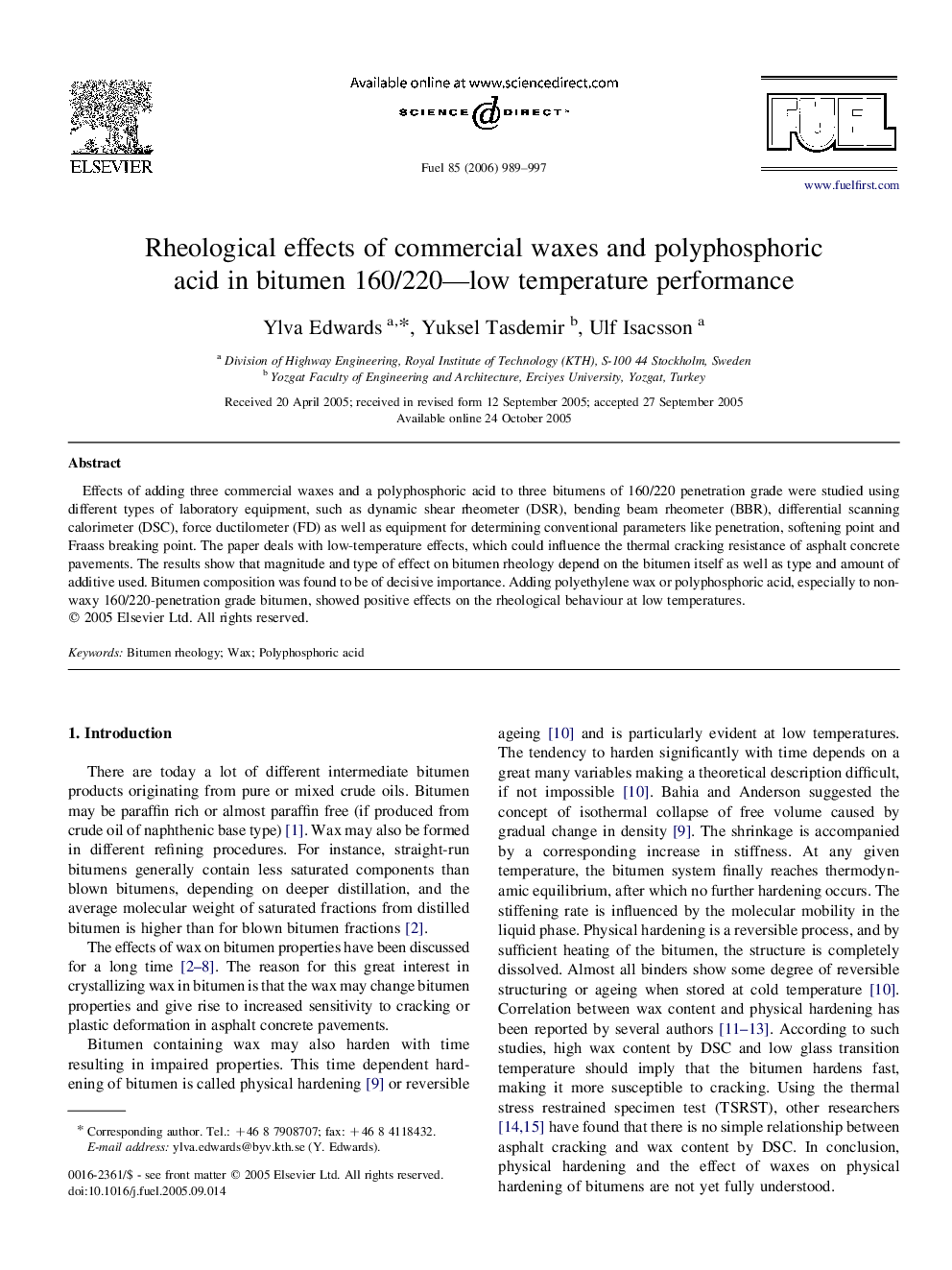| Article ID | Journal | Published Year | Pages | File Type |
|---|---|---|---|---|
| 208664 | Fuel | 2006 | 9 Pages |
Effects of adding three commercial waxes and a polyphosphoric acid to three bitumens of 160/220 penetration grade were studied using different types of laboratory equipment, such as dynamic shear rheometer (DSR), bending beam rheometer (BBR), differential scanning calorimeter (DSC), force ductilometer (FD) as well as equipment for determining conventional parameters like penetration, softening point and Fraass breaking point. The paper deals with low-temperature effects, which could influence the thermal cracking resistance of asphalt concrete pavements. The results show that magnitude and type of effect on bitumen rheology depend on the bitumen itself as well as type and amount of additive used. Bitumen composition was found to be of decisive importance. Adding polyethylene wax or polyphosphoric acid, especially to non-waxy 160/220-penetration grade bitumen, showed positive effects on the rheological behaviour at low temperatures.
